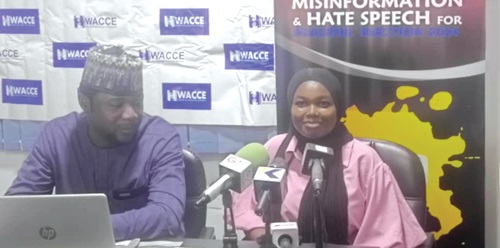
Fake news, hate speech undermine peaceful election — WACCE
The Executive Director of the West Africa Centre for Counter-Extremism (WACCE), Mutaru Mumuni Muqthar, has warned that fake news, misinformation and hate speech can undermine the conduct of peaceful elections in December 2024.
He said the growing incidents of fake news, misinformation, disinformation, hate speech, poorly regulated media platforms and the highly polarised political space could undermine peaceful elections if not addressed quickly and comprehensively.
Briefing
Mr Muqthar said this during a media briefing to mark the end of WACCE’s project on hate speech, misinformation and disinformation in the Northern, Savannah and Upper West regions.
He explained that there was a tendency for panic, chaos and ill-guided decisions caused by fake news, misinformation and disinformation.
“Already, a catalogue of incidents indicates the determination and desperation of many political actors and their associates including the youth to weaponise hate speech and fake news for political gain.”
Mr Muqthar revealed that in May 2024, a radio presenter with Dagbon FM in Tamale was attacked in the studios of the radio station during a live broadcast even on World Press Freedom Day.
“Also in October 2023, a group of unidentified men stormed the studios of UTV, an Accra-based TV station, to attack panellists for comments they considered offensive against their political party.”
Electioneering
He said as Ghana headed into the 2024 election campaign season, those incidents would be widespread with the tendency to create a potentially perilous campaign encounter.
“This is why this project, with the support of the Danish Government and the West Africa Network for Peacebuilding (WANEP), was initiated to empower young people to participate in addressing the problem and contribute to peaceful elections this year,” he said.
Mr Muqthar called on political leaders and other stakeholders to be mindful of their language, uphold the truth and ensure peaceful elections.
‘Language shapes behaviour. We call on political party leaders and those who communicate on behalf of political parties to be factual, decorous and to act in a manner that is supportive of peace before, during and after the elections,” he noted. — GNA
